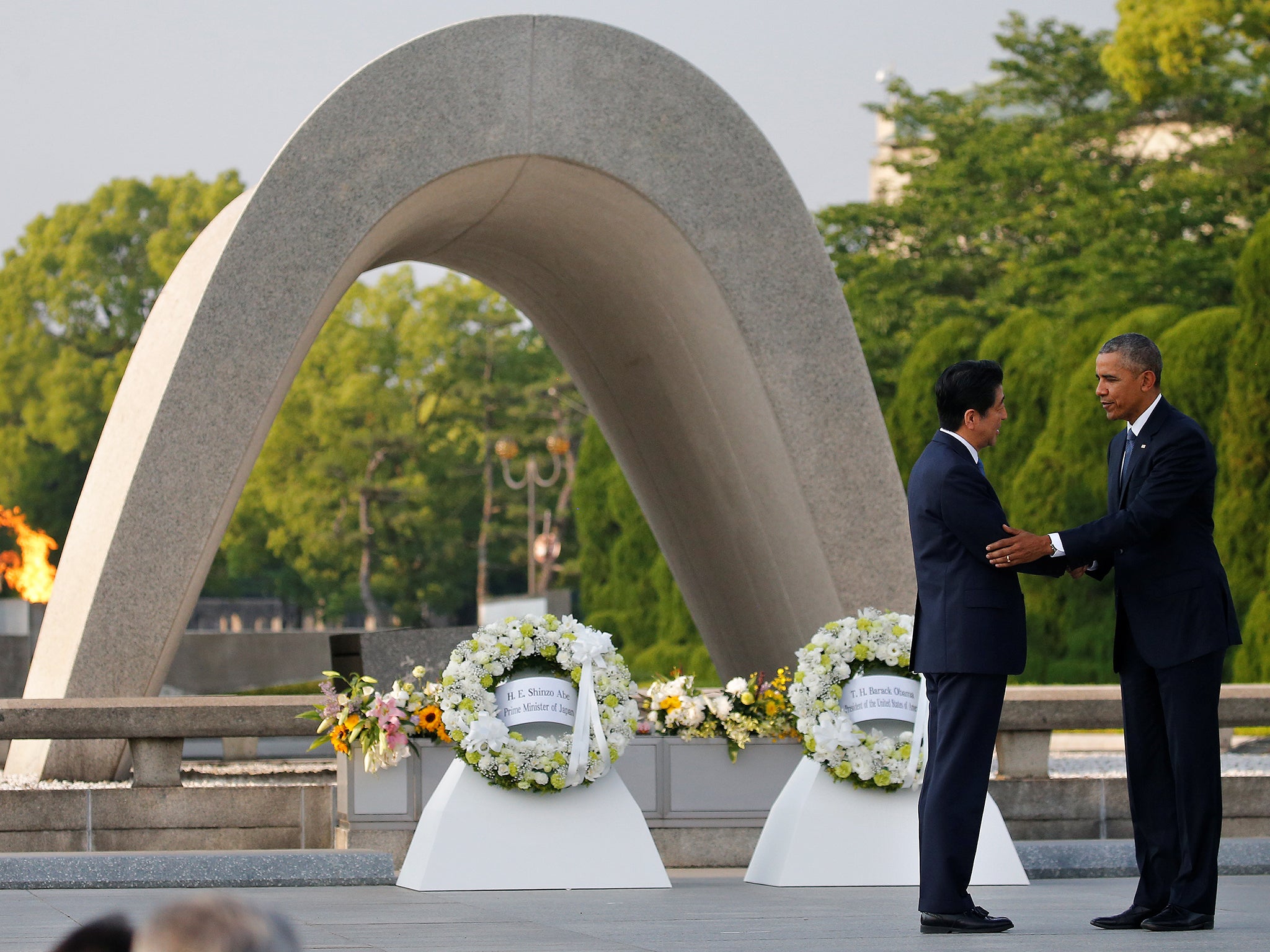The story of women scarred in Hiroshima reminds us the threat of nuclear war has never gone away
A decade after the atomic bomb killed and maimed thousands of citizens in the Japanese city of Hiroshima on 6 August 1945, the US brought 25 women to America for plastic surgery. Becky Alexis-Martin tells their story

An immaculately dressed woman moves forward in her seat, leaning on her walking stick. Her clear gaze is undaunted by age as she firmly declares, “No more atomic bomb, no more nuclear weapon, no more war.”
This is Shigeko Sasamori, an atomic bomb survivor. She is in conversation with peace activist Clifton Truman, the grandson of President Harry S Truman – the man who ordered the atomic bombings of Hiroshima and Nagasaki on 6 and 9 August, 1945. Sasamori was only 14 years old when she suffered burns to 25 per cent of her body. She is one of the so-called Hiroshima Maidens who visited America for reconstructive surgery in 1955.
It is now 75 years since Hiroshima was destroyed by Little Boy. In its aftermath, fires raged across the city. Concrete was seared salmon-pink by radioactivity and buildings crumbled from the blast. Death and cremation occurred simultaneously, as human bodies were reduced to ash and the traces of their shadows were scorched onto the ground. It is estimated that 135,000 people died - many of whom were women and children. Those who survived were stripped of everything except their lives, and many suffered life-changing injuries. They became the Hibakusha, meaning “the exposed”.
Subscribe to Independent Premium to bookmark this article
Want to bookmark your favourite articles and stories to read or reference later? Start your Independent Premium subscription today.
Join our commenting forum
Join thought-provoking conversations, follow other Independent readers and see their replies